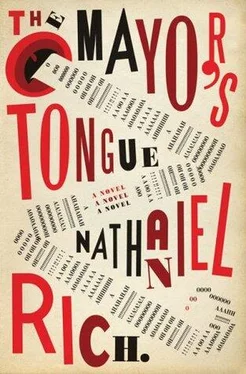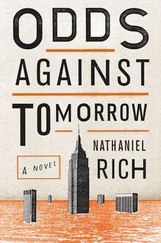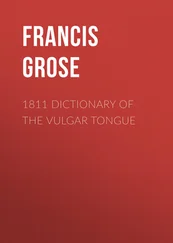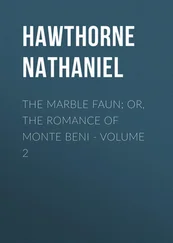"We'll write each other constantly. That's how it was in the old world. And imagine all the new stories I'll have to tell you."
"All the new cities."
"Every city a story," says Rutherford. "Just think how much I'll have to tell you. And maybe you'll have a thing or two to tell me."
The day before Eugene left for Italy, he was sitting with Alvaro in a cul-de-sac on Sutton Place, across the street from his old apartment. Eugene had not seen his father since he left the previous June, saying he was late for his flight to West Palm Beach. Signor Brentani's most recent letter, relayed from the post office box Eugene had registered in Florida, had troubled him. The writing was virtually illegible, muddied by cross-outs and inkblots that soaked right through the page, as if the author had sat with the pen pressed against the paper absentmindedly for minutes at a time. There was only one sentence that Eugene could make out with confidence. It was written in Italian, and was somewhat puzzling: "I would like to visit you, I will visit you, I would like to visit you, even if I don't leave this house."
Now Eugene waited for his father to leave the apartment building. He thought he might surprise him. But even if he didn't get up the nerve to speak, Eugene wanted at least to see his father before leaving for Italy — feel some proximity to him, gauge his emotional state, make sure he wasn't having any sort of collapse. He sat on a stoop behind Alvaro, who was wearing a green hooded raincoat, carefully billowed to block Eugene from view.
"Don't you think," asked Alvaro, after some minutes had passed, "that we might be more suspicious rather than less because of the fact that I'm wearing a raincoat in the middle of a bright summer day?"
"If you're questioning my plan, don't. He'll be out any minute. I know his routine. Or at least the main gist of it."
"Is it absolutely necessary that I wear the hood?" asked Alvaro, reaching for it. "It's really hot outside."
"Could you please leave the hood on? It blocks my face. You're too short otherwise."
The door opened and an old man wheeled his wife out in a wheelchair; she exclaimed in delight when she saw the brightness of the sun over the East River. Later a middle-aged woman, whom Eugene recognized as his childhood babysitter, emerged wearing a business suit, her heels clattering expertly on the concrete. The door opened again and they saw a stumpy maid accompanied by a small boy dressed in a Superman costume.
"I bet your father's asleep," said Alvaro.
"Just keep that damn hood on, please. Please, Alvaro?"
A large truck from a Jewish moving company rolled up, blocking their view for a moment. When it pulled out, Signor Brentani was standing under the awning. He was wearing a long trench coat. He mopped his brow with a handkerchief, and then turned and set off north along Sutton Place. Eugene froze. Then Alvaro stood up to follow him, and Eugene jumped up as well, afraid of being spotted.
"Let's wait until he gets to the esplanade," said Eugene. "Slow down, stay farther behind him."
"Do you know where he's going?" asked Alvaro, without turning his head.
"He always goes to the esplanade for his morning walks. It's quiet there. It'll be a good place to talk."
"It's quiet here. Why don't you just go up to him now?"
"I'm not sure. I'll figure something out. I could say I'm back for a surprise visit."
"What will you say to him?"
"It's true. I am about to leave, after all. Maybe I'll say I'm going away. Going exploring."
Alvaro shrugged and kept following Signor Brentani. After several blocks, Eugene's father turned to the esplanade, which was nearly empty at this early hour. He leaned against the iron railing and looked out over an especially turbulent portion of the East River. There, in the middle of the river before him, was an eyot called Mill Rock Park. A flock of cormorants perched on it. They flapped their wings without ever taking flight, their claws sticking in their own filth. They twittered and squabbled in strident voices that carried, together with their stink, across the water to the Manhattan shore.
Alvaro and Eugene hid in the shrubs that bordered the esplanade. They were less than ten feet from Signor Brentani, but Eugene was not concerned about being noticed. His father had entered some kind of trance. The tails of his coat lifted in the wind, showing his bare legs. It is rare in this city, thought Eugene, that one sees a man outdoors quieted by his own contemplations. New Yorkers get lost in crowds, or in Queens, but seldom in thought.
"Go," whispered Alvaro. He gestured Eugene forward.
"Right," said Eugene. He didn't move. "OK. Right. OK."
"GO," said Alvaro, turning to look at his friend. "What are you so afraid of?"
"OK!" said Eugene, more to himself than to Alvaro. "Right!"
Signor Brentani drummed his fingers on the black railing. He watched as a pair of cormorants began to fight, pecking violently at each other. The rest of the birds surrounded them, forming a makeshift boxing ring. They spurted up into the air and dove down, feinting attack, as if to spur the two squabblers into deeper combat. A coarse, husky voice rang out.
"Signor Brentani!"
A large woman swathed in a black floral-print blouse sauntered toward him, with beads swinging on strings from her sweating neck. She wore a large straw hat whose brim was encircled by a wreath of plastic roses, tied with a celadon ribbon.
"My darling!" said Signor Brentani, raising his arms up like a man praising his lord.
"My Jesus!" said Eugene. He dove back into the shrubs with Alvaro.
"Who's that?"
"I have no idea."
The woman took off her hat, revealing a bleached bouffant. She inclined herself downward — she was tall as well as thick— and kissed Signor Brentani's forehead. Alvaro, averting his head in the bush, spat into the soil.
The woman and Signor Brentani interlocked arms and headed south, in the direction of the Stanley M. Isaac Houses and Senior Center — two dismal, rusted-white buildings that seemed about to fall together, as if they wanted to lean on each other for support.
Eugene and Alvaro watched them walk away.
"What. . just happened?" asked Eugene.
"It looks as if your father has fallen in love. Just like you, the way you walk around in a daze. I don't know how you keep your interest, with her gone. My women have to be in the same city as me, if not the same neighborhood."
Eugene nodded absently. He supposed he was relieved that his father was happy, had found someone to share the days with him. Yet he couldn't help but feel disappointed. As he and Alvaro made their way back toward the subway, Eugene realized that, on some lower level, he had desperately wanted to communicate with his father. He had wanted to explain that he was doing good work, was living independently, and was finally going to visit Italy — and he wanted to hear what his father had to say about it all. Eugene might not have coveted, or been able, to have such a conversation six months earlier, but something had changed since he had moved to Inwood.
His train of thought was abruptly derailed at York Avenue, when a lizard-faced man jumped out at them from behind the street corner. He stank of rotten juniper and wore a soiled blue ascot; his tawny chest hair tufted out of an unbuttoned pirate's shirt. Eugene shook his head: I have no money, I'm sorry, have a good day.
"I don't want your money," said the drunk, sweating alcohol from the folds in his loose skin. He hiccupped loudly, and then winked.
"OK," said Eugene, without slowing his gait.
"Don't you recognize me?"
Читать дальше












